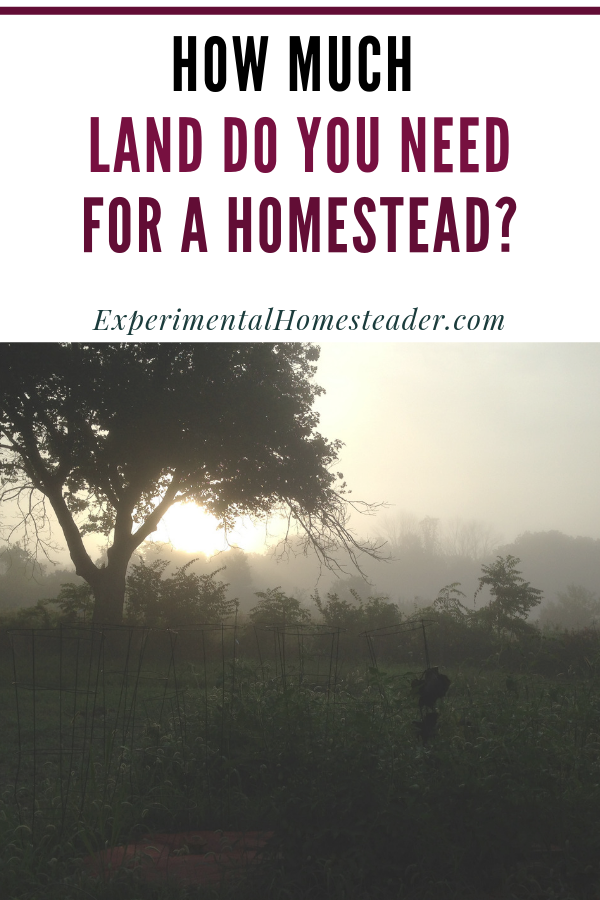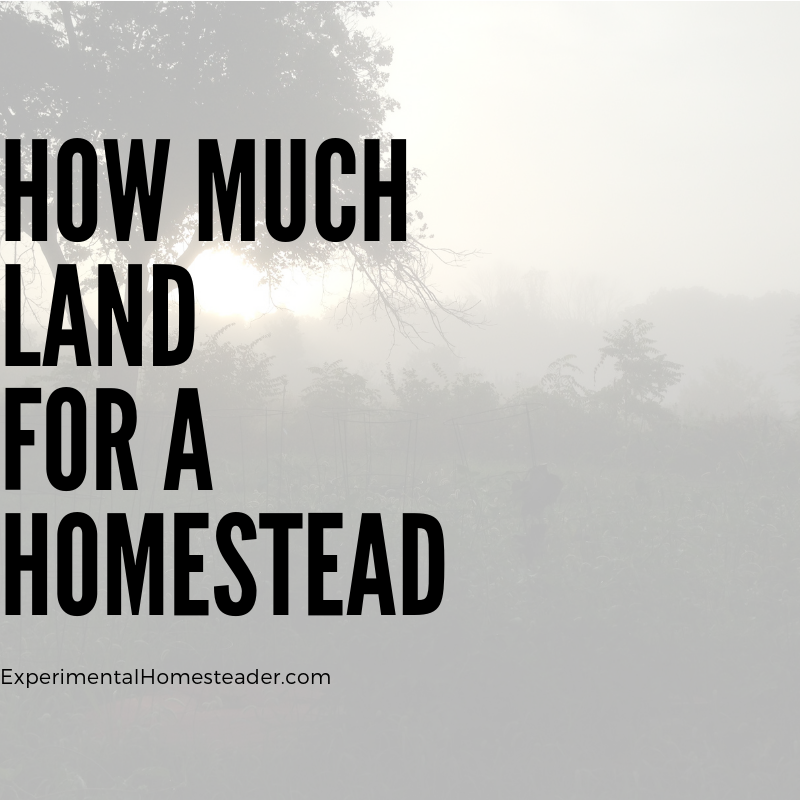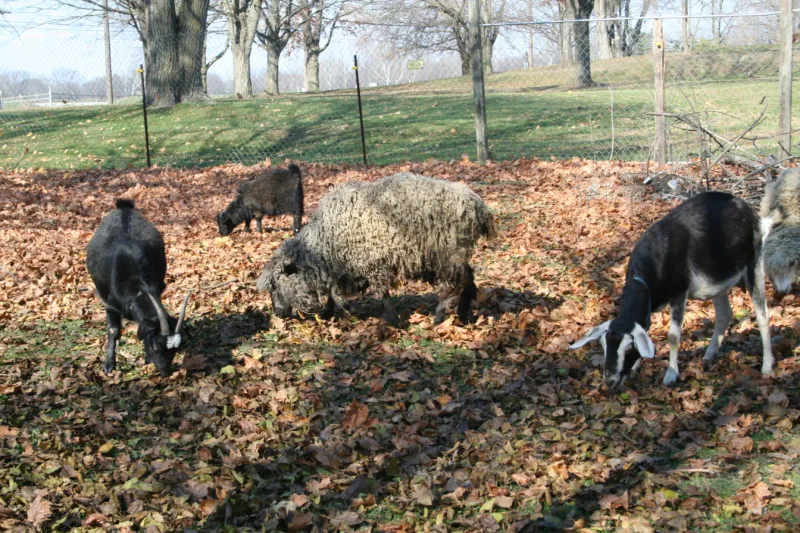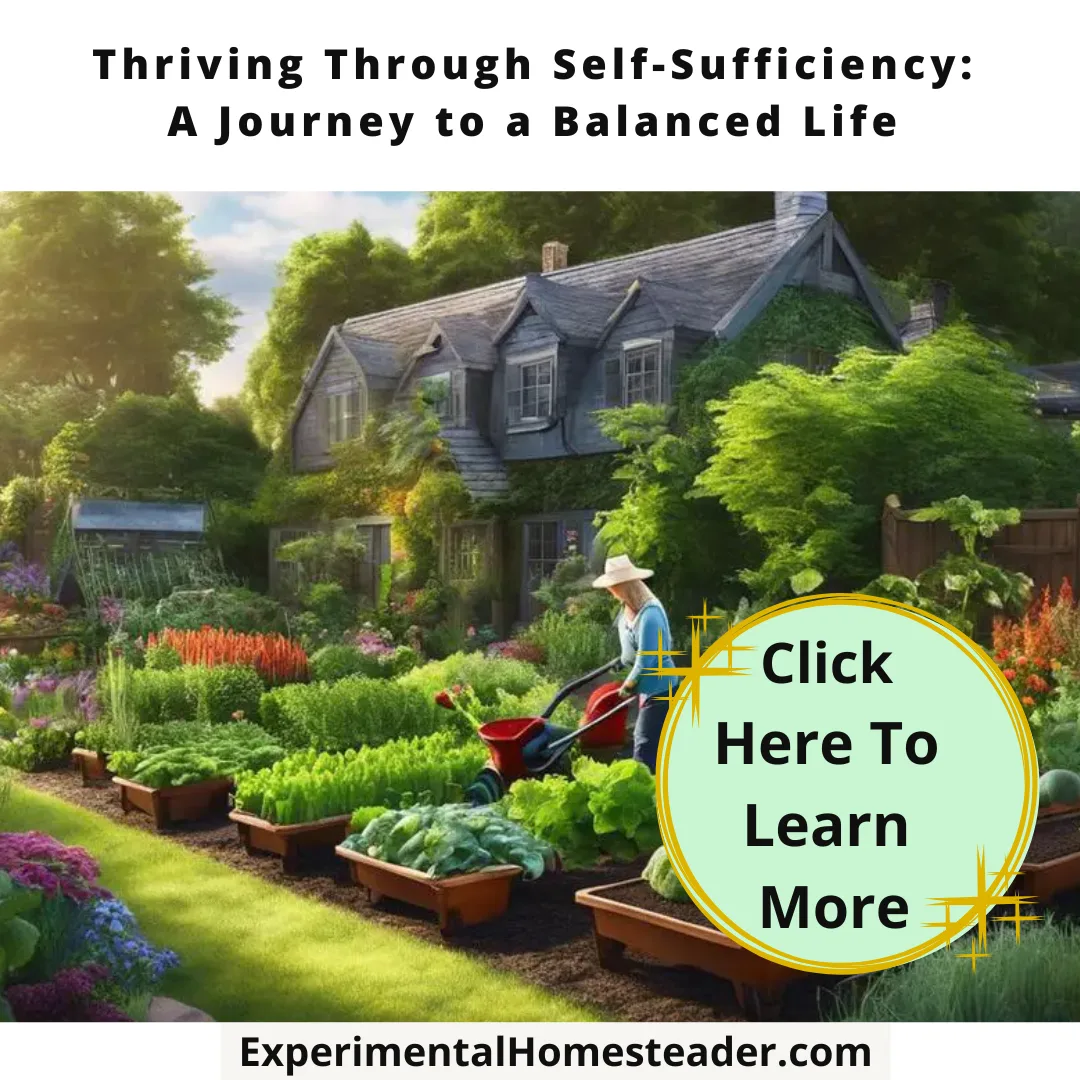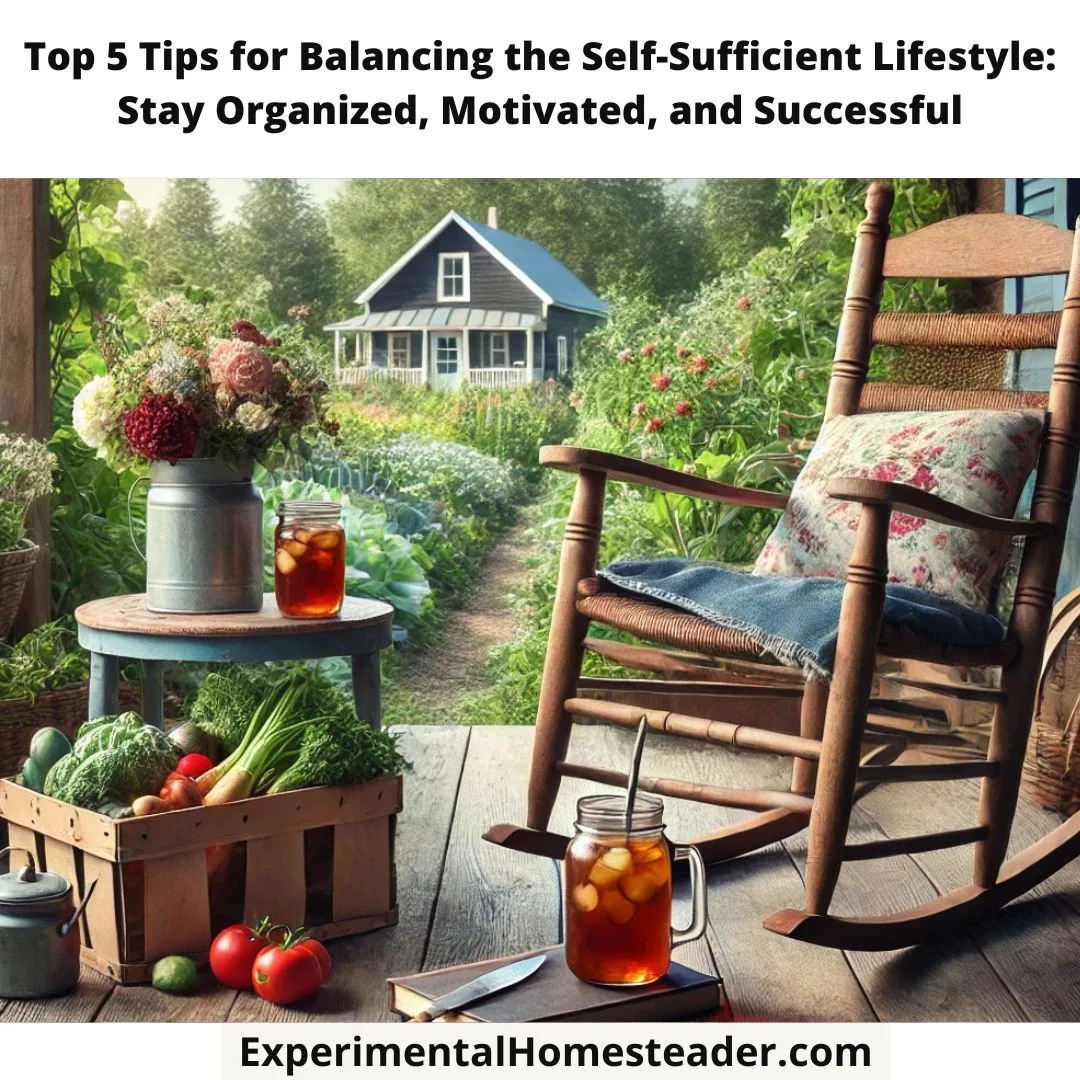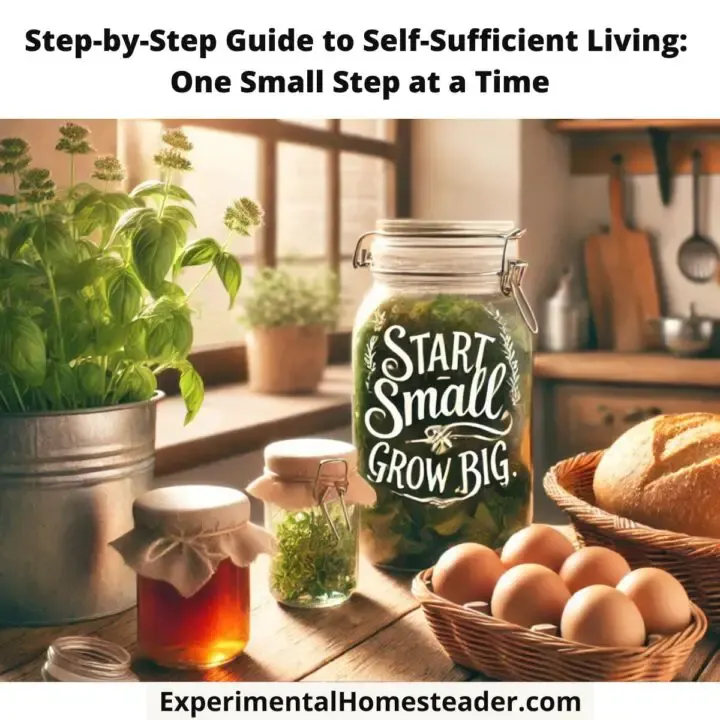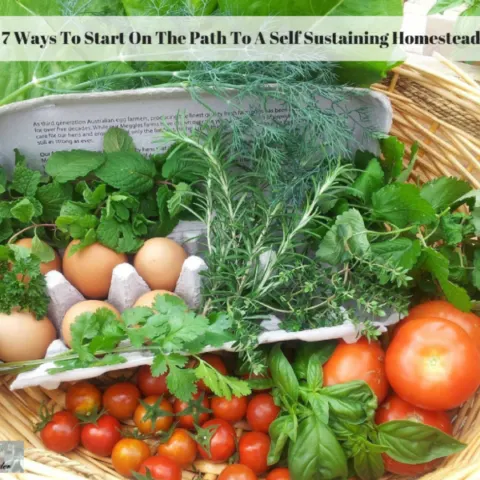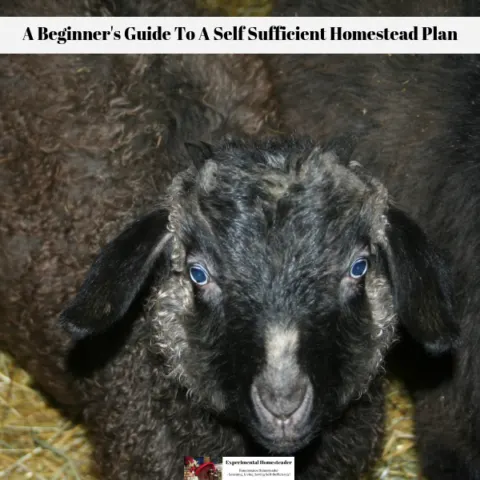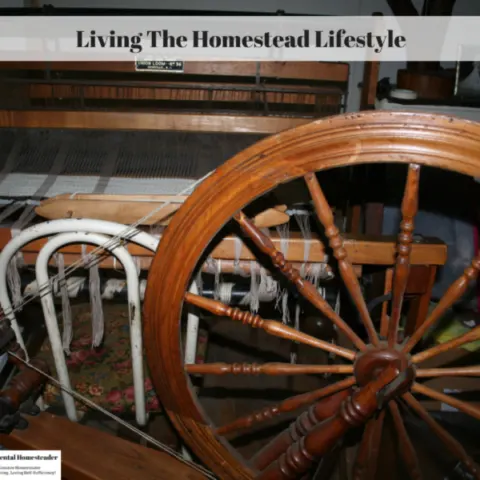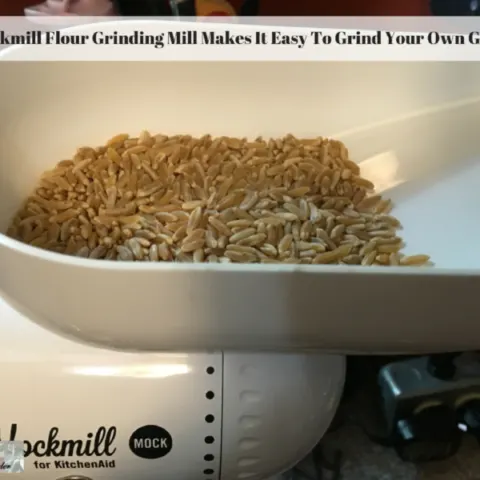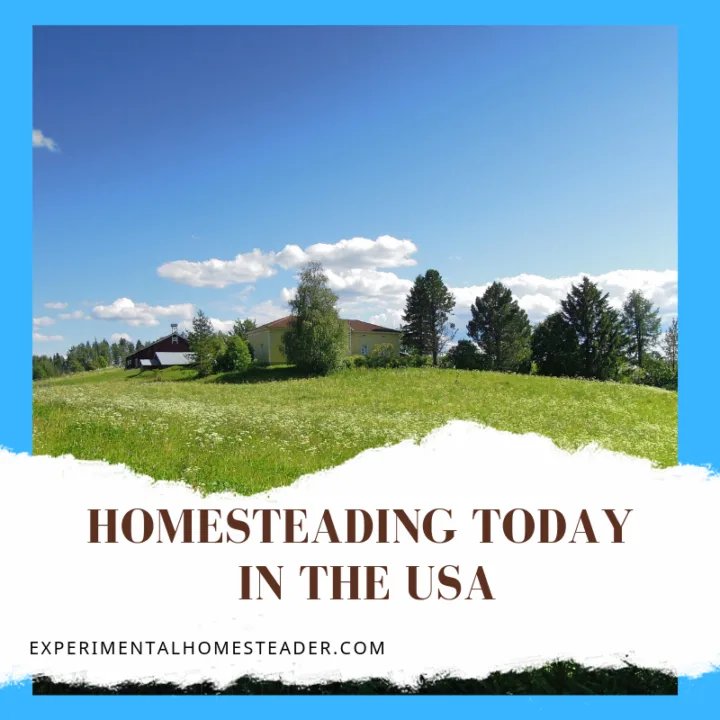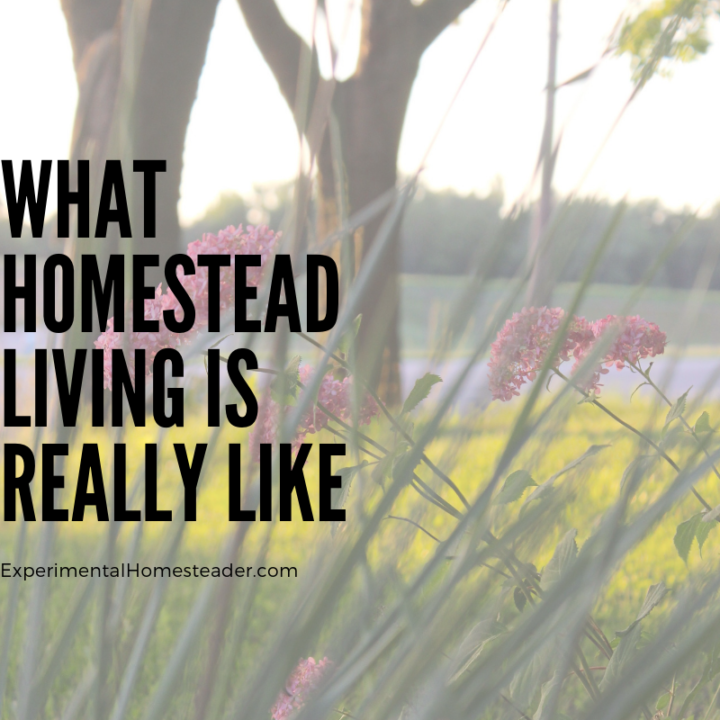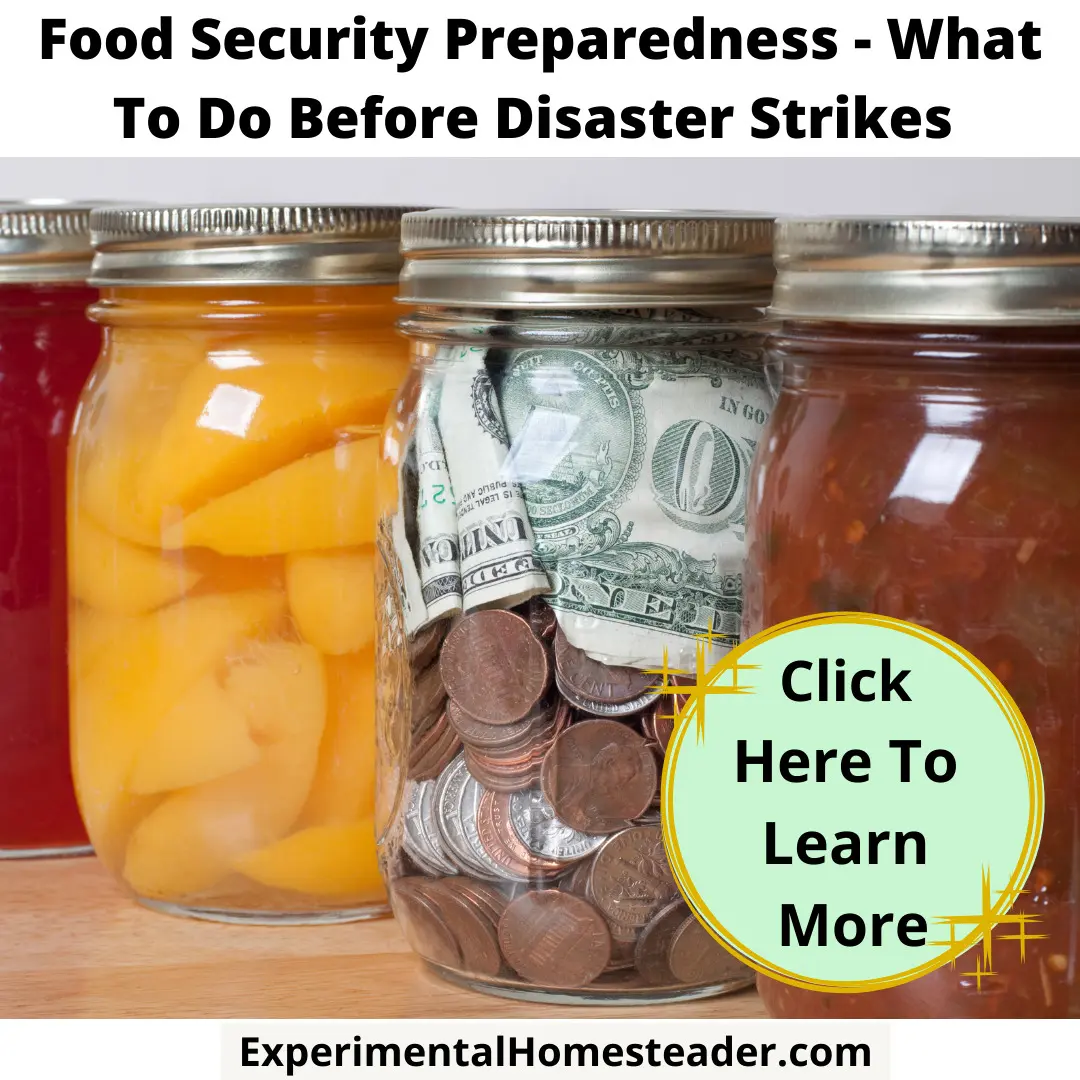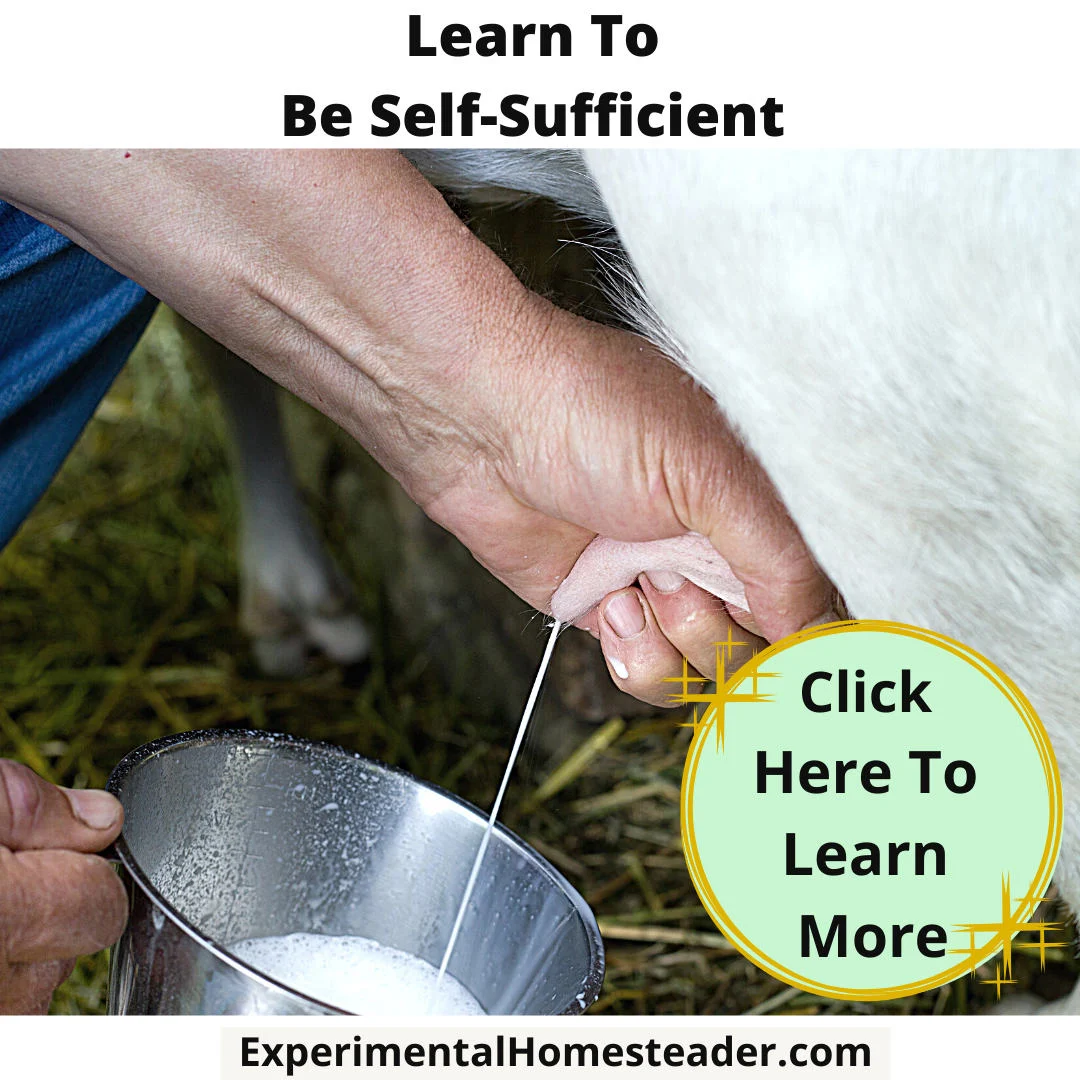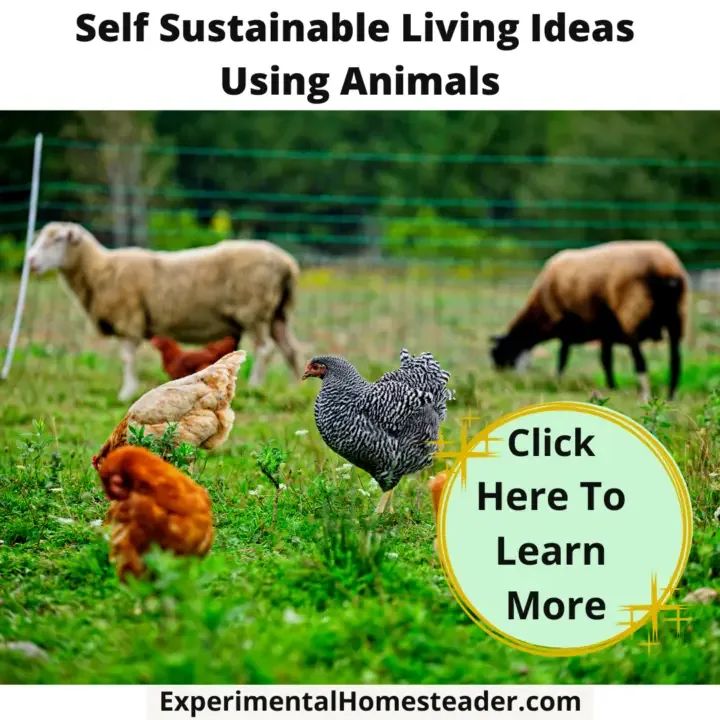Before you make a decision on how much land for a homestead you need, it is important to think about what your end goal is.
Some people homestead in the city on a regular size lot while others prefer to homestead on hundreds of acres.
When you talk about how many acres are needed to get off the grid and become self sufficient, the battle begins between those who say you only need an acre and those who say you need much, much more.
Actually, both answers are correct and here is why.
Is An Acre Really Enough Land For A Homestead?
It all depends on how you plan to live and how self sufficient you truly want to be.
Homesteading today is a lot different than it was years ago.
You can live on a single acre and raise animals, grow crops, and build a home.
But you have to take many things into consideration such as raising a dairy cow.
If you want to cut costs for hay, then it has to be able to graze in a pasture.
If that is the case, then the cow needs plenty of room and an acre that also houses your home, garden and other barn isn't enough.
However, that does not mean it is impossible to live on an acre and raise a cow.
If you have the means to buy feed and hay instead of allowing grazing, then you could own a dairy cow on a small property like this but your costs and inconvenience would increase, as would your reliance on the outside world.
It also depends on how large your family is and how many people you have to sustain on your property.
It is going to take more of everything to support a family of five than it would a couple.
Homesteads On Larger Acreage Offer More Opportunities
Some people want a large piece of property simply so you don't have neighbors living right next door to you.
Having a land barrier on all sides of your homestead could make a difference in a civil unrest situation or in a crisis such as a natural disaster when people are fighting for survival supplies.
Of course, what you can afford is certainly going to factor into the equation.
However that does not mean you won't be able to find a large plot of land on a small budget.
It really depends on what else you want on that piece of land and how much work you are willing to do to possibly renovate a house, outbuildings or even clean up the property.
Living on a large piece of land also offers more opportunities to be completely self-sufficient and even live off-grid.
Some families opt to invest in large plots of land so that when their children are grown, the family can expand and build a second, third or fourth home on the property.
This is what families use to do in the old days.
Of course, if this is your intent, look carefully into the land you purchase to make sure this is a legal option as not all pieces of land can have more than one home on them.
What To Look For On A Potential Homestead Property
Some homesteaders will tell you that the size of your land is nowhere near as important as the quality of it.
If it offers more than one escape route from the property, rich soil, and a natural water source, that it is worth more than a larger plot.
This is the truth and something one should carefully consider before making a decision to purchase a piece of land.
However sometimes the perfect property comes along, at the right price and you simply do not get everything you want.
Land is easy enough to improve with plenty of organic matter, which animals readily provide.
While a natural water source is wonderful, collecting rainwater is an alternative option.
You can always dig your own pond as well.
The key is to make sure your homestead has a way to easily get water even if that is a well or hooking into city water.
Lastly, while more than one way in or out of the property is great, it is also a hassle.
The more entryways you have, the more gates you have to put up because remember if you can get access to your property, so can everyone else.
So, How Much Land Do You Really Need For A Homestead?
A sweet spot is five to ten acres.
However, I homestead on 2 ½ acres and have plenty of room to grow flowers, vegetables fruit trees and herbs.
I also raise poultry, goats, rabbits and sheep, plus keep a horse.
I do buy hay and grain to feed them.
On the acreage is a large barn/garage combination building, a home, a chicken coop and two small sheds.
With the crops from this acreage it is easy to provide enough eggs, milk, fruits, herbs and vegetables for three to four people to live on year round plus have extra to sell or donate to food pantries.
I do preserve the excess by freezing it, canning it or dehydrating it so I have it for winter use.
My advice is buy the largest piece of land you can realistically afford, but keep in mind you have to take care of that land.
Using animals to keep the grass under control is great, but they do need to be fenced in which can get expensive plus you have to keep the fence in good shape so they don't escape.
Give serious consideration to your homestead plans, your actual budget and the time you have to invest in working on your homestead.
Once you take all of this into consideration, choosing the right sized piece of land for your homestead is going to be a lot easier.
Self-Sufficient Living
Explore the ultimate guide to self-sufficient living with our curated list of related blog posts. From food preservation to DIY projects and homesteading inspiration, find everything you need to thrive on your self-sufficiency journey. Perfect for beginners and seasoned homesteaders alike!
The Essential Guide To A Completely Self Sufficient Homestead
Learn how to start living on a completely self sufficient homestead today with this essential guide plus sign up for our FREE eCourse!
How To Be Self-Sufficient In An Apartment
Learn how to be self-sufficient in an apartment. Even if you live in a big city you can learn skills you will use one day on your homestead.
Thriving Through Self-Sufficiency: A Journey to a Balanced Life
Learn how to thrive through self-sufficiency: slow down, live intentionally, and find balance for a healthier and more sustainable lifestyle.
Top 5 Tips for Balancing the Self-Sufficient Lifestyle: Stay Organized, Motivated, and Successful
Discover how to balance the self-sufficient lifestyle with actionable tips for organization, motivation, and sustainable success.
Step-by-Step Guide to Self-Sufficient Living: One Small Step at a Time
Start small with this step-by-step guide to self-sufficient living. Simple, achievable tips to ease into a sustainable lifestyle.
7 Ways To Start On The Path To A Self Sustaining Homestead
A self sustaining homestead is a lot of work but you do get a lot of satisfaction knowing you are living the self sufficient life you've dreamed of.
A Beginner's Guide To A Self Sufficient Homestead Plan
Making a self sufficient homestead plan is the first step to accomplishing your goal of living on a self sufficient homestead.
Seasonal Foraging Guide for Homesteaders: Year-Round Wild Edibles
Enhance your homesteading skills with our comprehensive seasonal foraging guide. Learn how to find and enjoy nature's delicious offerings.
Living The Homestead Lifestyle
Embarking on the homestead lifestyle is not easy. This is why I love Homegrown and Handmade by Deborah Niemann. The homestead tips are great!
Weapons To Include In Your Homesteading Self Sufficiency Survival Kit
Learn what weapons - both lethal and non-lethal - to include in your homesteading self sufficiency survival kit. Also learn why you need to include them.
Mockmill Flour Grinding Mill Makes It Easy To Grind Your Own Grain
The Mockmill flour grinding mill quickly and easily turns wheat berries into flour that is perfect for making freshly baked bread.
Homesteading Today In The USA
Although the Homestead Act of 1862 is no longer in effect, free land is still available for those wanting to try their hand at homesteading today.
What Homestead Living Is Really Like
Learn what homesteading living is really like. It's not always picturesque or romantic. In fact, sometimes it is difficult.
Food Security Preparedness - What To Do Before Disaster Strikes
Learn what food security preparedness skills you need to survive any natural or man-made disaster, and why you should grow your own food.
Learn To Be Self-Sufficient
Learn to be self-sufficient from Sheri Ann Richerson, a modern day self-sufficient woman with these eBooks and printables!
Self Sustainable Living Ideas Using Animals
Animals are a great way to help you acheive your self sustainable living ideas. Learn what animals are best for your self sufficiency plan.
Preserving Herbs For Winter Use eCourse
Do you love fresh herbs but wonder if there is an easy way to preserve them for the winter?
Do you seek other ways to use herbs other than just as a seasoning on food?
There are so many ways to preserve herbs for winter use – from various methods of drying them to freezing them, but it doesn’t end there.
Some of the best ways to preserve herbs in right in the foods you would normally incorporate herbs into – pre-made seasonings, teas, butter or oil.
Then this is the course for you!
What You Will Learn In This Course:
Hang herbs to dry
Use a hanging herb dryer
Dry herbs on a window screen dryer
Dry herbs in a dehydrator
Dry herbs in an oven
Dry herbs in a microwave
Freeze herbs whole
Make herb ice cubes
Add fresh herbs to freezer meals
Add herbs to canned sauces
Preserve herbs in vinegar
Preserve herbs in oil
Preserve herbs in butter
Preserve herbs in salt or sugar
Make pre-made seasonings
Make herbal tea
Make herb jelly (plus tips on how to use these)


